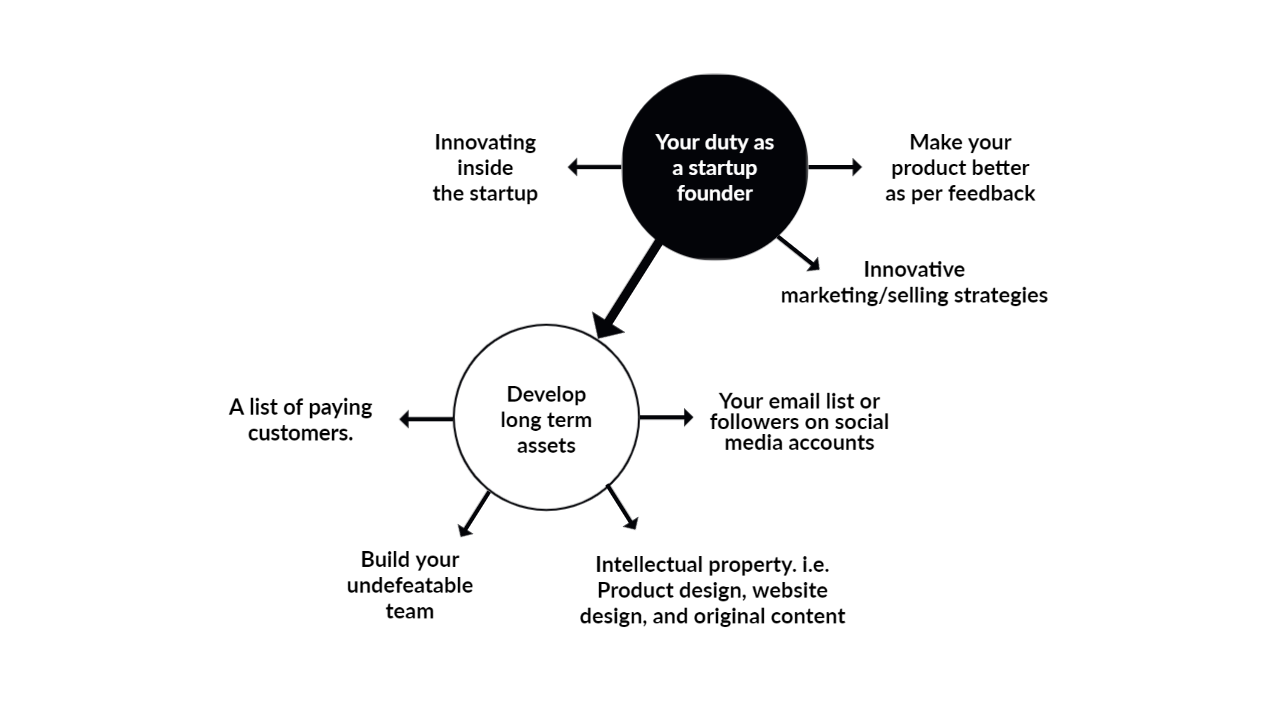If you are making mistakes, then you are making new things, trying new things, learning, living, pushing yourself, changing yourself, changing your world. You are doing things you have never done before, and more importantly, you are doing something.
I pray you never fail. I hope you get success in the first attempt. I don't suggest you seek failure. But it's inevitable. Fail Fast, Learn Fast is the key.
When I left my job, I was pumped up for a lifelong endeavor. But, in a startup, conceiving an idea and actually walking down the path to making something out of the concept are two different things altogether. The plan in your head and the plan life has for you are very different, and when life starts showing its own plan, you begin to fall. Your days are filled with anxiety and depression when you start something new because it never goes the way you intended. Within a year, I had one startup failure in my account.
Over the last three years, I have learned several things about Entrepreneurship and Startup by making mistakes and learning from others' mistakes. Let's uncover one by one, so you don't make any of these mistakes.
Not going after your business idea wholeheartedly
You can't be half pregnant with your idea. Trying for some months, if works then good else back to the job, is a weak mentality. That's not how no-matter-what entrepreneurs are! They don't become entrepreneurs for a few months then go back to the job after failure; they go all in. When you do things half-heartedly, you don't produce your best.
In 1519, Captain Hernán Cortés landed in Veracruz to begin his great conquest. Upon arriving, he gave the order to his men to burn the ships, so they only have one option — to win the battle. There is no turning back. Similarly, you must not keep the option of going back to the job after entering into an unknown territory of entrepreneurship.
Not partnering with the right people.
You should not go after co-founder just for the sake of having a co-founder but look for co-founder only when you genuinely need one. Don't make your friend your co-founder because of a friendship. Find someone who is as passionate as you, who won't start a job within a few months of trying, who is ready to walk down the path to success than just in for the end result. To do more on that, find someone who can invest in your startup. Your co-founder must have some skills that you lack. If you are a software engineer, your partner should be someone who knows about running a business or knows how to design a product or market a product.
Not getting started
One of the main mistakes founders make is they never get started. They wait for the perfect time to start, make plans, do every other thing except the most important thing, that is, to take the idea in the market asap. Initially, in any startup, you must remove all other distractions and keep the focus on the feature, for which your prospect is willing to pay.
Not testing assumptions
We tend to make many assumptions based on our knowledge about your startup's niche, especially about your prospects. Or, we validate our ideas with the wrong people. Your prospects must have said that the idea is really cool, but when times comes to pay for it, they don't show up. A wise entrepreneur always works on data, not on assumptions. Test your hypotheses asap.
Not doing enough research
Another big mistake founders make is not doing proper research of their industry. Take some time to research the existing solution to the problem you work. Ask your ideal customers their preference. Before moving ahead with your idea, learn what your customer really wants, not what you think they want.
Chasing too many ideas
A very famous maxim goes like this, 'He who chases two rabbits catches neither.' As a founder, you must shut off all other ideas while working on one. I love the book One Thing, which explains the importance of focusing on one thing and completing it. When your startup gets successful, you can go ahead with implementing new ideas, but first, give all your energy to make one idea successful.
Making high cost bet
Do not put all your eggs in one basket. Startups are tricky because they operate on extreme uncertainty. We discussed the importance of Minimum Viable Product, and why we must launch quickly. By doing so, we not only save our money and time but also improve based on what customers really care for.
Running out of money
Most startups fail because of this single problem. Putting all your money into your startup is not a smart choice. Instead, take small bait. Start with some money and focus only on getting the initial customers. Get your initial customers to generate revenue and bootstrap your startup. It's wise to validate your idea before putting everything on it. START EARNING ASAP.
Going after funding
I have purposely skipped funding in this book because you should build a base for your customer before looking for money from the outside. When you start thinking about funding from the beginning, you lose the focus from your customers. Rather than focusing on funding, serving a customer is a better choice, building trust is a smarter concern, and improving the product is a wiser substitute.


